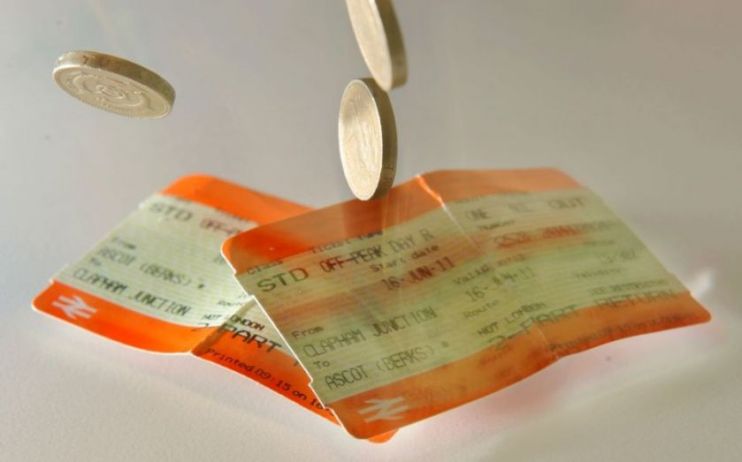City groups call for action to prevent government rail fare hike

London businesses have condemned a significant rail fare hike which could hit commuters next year, amid widespread disruption on the UK railway network and poor service delivery.
UK ticket prices could shoot up eight per cent if the Department for Transport (DfT) uses the same metric as it did this year to calculate the increase, it was revealed today.
Regulated rail fares, which include standard day returns, season tickets and most commuter fares, make up almost half of all fares and are set by the government.
This year’s cap on fare increases is currently aligned with Britain’s average earnings growth for July 2022, which was 5.9 per cent.
But figures published by the ONS this morning showed this had jumped to eight per cent, which would result in the highest annual ticket fare increase since the privatised-era, according to PA news agency analysis of industry data.
The eight per cent jump would see 27 season tickets in popular London commuter routes rise above £5,000 next year, with ten passing the £6,000 mark, according to estimates by pressure group the Campaign for Better Transport.
The DfT had previously aligned the hike with July’s Retail Price Index (RPI) figure but in 2022, opted to use the July average earnings growth rate instead in order to avoid a massive double-digit fare rise caused by soaring inflation.
The government said in August that it did not intend to align next year’s fares with the RPI in July, but it is yet to be confirmed what future measure will be used.
Adam Tyndall, programme director for transport at BusinessLDN, which represents a slew of the capital’s businesses, told City A.M. “increasing ticket fares without a clear plan to improve rail services risks fewer passengers choosing to travel by train, in turn undermining the recovery of the sector and London.”
“Passengers continue to be frustrated by disrupted services, and there is no end in sight for industrial action. Much-needed industry reforms have also been put back on the shelf – including modernising the whole system of how tickets are priced,” Tyndall said.
“The railways need a plan for growth, attracting more passengers onto the railways for the good of both the economy and the environment.”
James Watkins, Head of Policy and Public Impact at London Chamber of Commerce and Industry said the chamber was “concerned” about the rise during the cost of living crisis, as well as the impact on small businesses.
“At a time where many organisations are trying to encourage people to work in the office this could deter employees from taking the train altogether. This could create a lose-lose situation for businesses, which could increase costs,” he added.
A DfT spokesperson said the government would “not increase next year’s rail fares by as much as the July RPI figure.”
“Any increase will also be delayed until March 2024, temporarily freezing fares for passengers to travel at a lower price for the entirety of January and February as the Government continues with its plan to halve inflation,” they added.